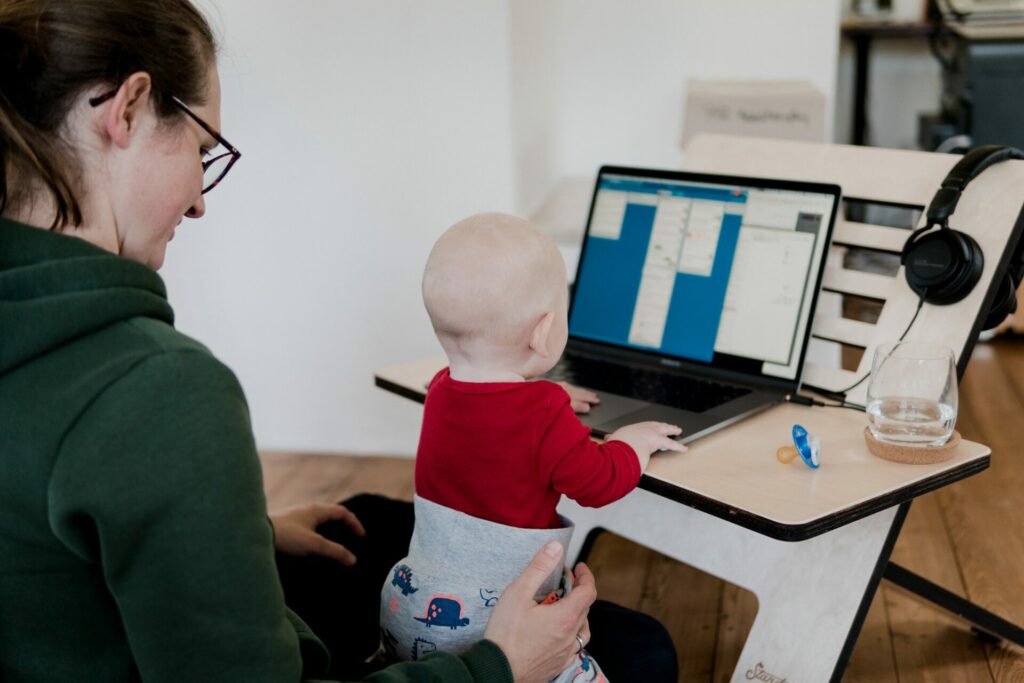Happy Melon would like you to pause from your busy life
![<? $single_post->image['title']; ?> <? $single_post->image['alt']; ?>](https://happymelon.com.au/wp-content/uploads/2020/06/Happy-Melon-Studios_low-res-110-900x500.jpg)
Home >> Journal >> Corporate >> What Does Employee Wellbeing Mean – Striving or Thriving?
What Does Employee Wellbeing Mean – Striving or Thriving?
Friday 27th November
A recent survey of Australian employees found that 77% cited work as the biggest source of stress. While certain levels of positive stress are necessary for motivation and performance, chronic stress is not healthy. It can ultimately lead to burnout. Supporting the emotional, mental, and physical health and wellbeing of staff, cultivating a culture of care and trust, is the way forward for businesses. Without your people, there is no business.
People have started to see the benefits of their team being healthy and happy while at work. Furthermore, they understand why it is not only better to have happy staff; it is crucial.
What is Employee Wellbeing?
Employee wellness is often described as being happy and feeling well at work. Feelings of unhappiness can transfer to and from our daily lives, affecting our whole life. In more recent years, the idea of employee wellness has changed somewhat. Although it is still mentioned and discussed in some of the larger Health and Safety publications, the focus has shifted.
The way that we at Happy Melon sees employee wellness is a broader spectrum of feelings and emotions than those only at a workplace. As you may have seen in the last article, a person’s overall wellbeing directly affects every aspect of their lives.
So, back to the question.
Employee wellness is a way for employers to support their teams to feel happy, healthy, and fulfilled throughout their lives as much as they can.
What Are The Employee Wellbeing Objectives and Why Should We Be Putting People First?
The primary objective of any employee wellbeing program is to help your team make lifestyle changes for their personal benefit. Companies that engage in employee wellbeing are far more likely to retain their best staff. They’re also likely to attract more talented people to join the team.
Planting the Seeds for Wellness at Work
Successfully investing in the health, wellness, and wellbeing of your staff results in a team that’s committed, engaged, and continually inspired. Getting to know your business, what’s working well, what challenges them, and then carefully designing and implementing is key. Cultivating wellness in the workplace and a culture of thriving employees is from a long term lens. Token classes and workshops are fun. But, the real benefits are reaped via a collaborative approach, and we’re here to help.
Provide Healthy Food – Nourishment For Encouragement
Almost all employees have short lunch breaks of about half an hour. That can lead them to have to choose an unhealthy, fast food option. However, if you offer them something healthier as part of your wellness budget, you will see that people start to take those offers instead of their usual bad diets.

Furthermore, a lot of offices and other workplaces will order food for meetings. Try to limit the number of times you use fast food places and promote healthy eating. Many companies will provide you with healthy food delivered to you.
Fueling our bodies with healthy foods such as leafy greens, fresh fruit, organic meat, provides us with the nutrients we need to work at our best.
Eating nuts, fresh fruits, vegetables, and whole grains can reduce the risk of mental health problems such as depression, while diets high in sugar and fat have the opposite effect. Furthermore, a balanced and nutritious diet will reduce the risk of heart disease and diabetes, benefit sleeping, and increase energy levels. All of which are linked to higher productivity and lower absenteeism/presenteeism.
Stay Hydrated
Drinking is one thing that many employees will fail to do regularly. When they are working, time can go by pretty quickly. To alleviate the water drinking issue, you could have an alarm set every half an hour, or hour, to encourage people to stop for a second and have a drink.
Dehydration can have a huge impact on cognitive performance. Even mild levels of dehydration can change your mood and cognitive functioning. So, ensuring that you keep your staff hydrated will help them and you.
We want staff to be “in the zone” but not forgetting to hydrate and nourish to sustain longer times of productive working, therefore reducing presenteeism. The human brain is around 70% water. A reduction in hydration levels by 2% can increase fatigue and reduce alertness. Drinking water has also proven beneficial in examination settings, thus proving effectivity of hydration, even in difficult situations.
Flexible Working Hours and Remote Working
Although you would think that everyone is used to working long hours, and at set times, because that was the norm, they are not conducive to good health practices. Studies show that working longer hours can have an impact on both sleep quality and mental health.
The year 2020 has seen a real shift in the way that people work. That has pushed employers to provide provisions to allow working from home. For most people, that has had a positive effect. It has taken us away from unhealthy snacks at the desk and given us more time to prepare nutritious food. Furthermore, the daily commute has reduced almost to zero, freeing up time for exercise.

However, remote working can negatively impact the mental health of people who now feel isolated. That isolation can impact on creativity and innovation.
Moving back into the office could be the best or worst thing that you can do, depending on how you react to working from home. However, introducing flexible working can allow your staff to work out a routine that suits them better. They may be able to reduce their commute times, which leads to lower stress, or have shorter days when they need them.
Here at Happy Melon, we want to incorporate classes into the working day to promote calm and ease, without changing routines unnecessarily.
Ergonomic Office Furniture
Most office staff are sat at a desk more time than they are moving. If you think that 8 hours a day they are working, 8 hours sleeping, and some hours relaxing. That only leaves a few hours a day that they are active. The more time people are active, the more benefit they will gain with posture, fitness, and mental health. Giving them some standing time with high desks will increase their physical fitness and mental capabilities.
What Does Employee Wellbeing Mean? The Future is Positive
Employee wellbeing means supporting your staff to be their best by understanding their needs, considerations, and strengths, at the “me, we, and us” levels. Leading your team with care and compassion will promote physiological safety, and the leaders must be the role model for this step towards a healthy workplace for everyone.
We are in a constant state of flux, of change, and workplace wellbeing is a continually evolving initiative. The key is repetition and consistency to create healthy habits and an engrained positive place to work.
Conclusion
Taking the time to think of your employee’s wellbeing has positively affected the general population and the workplace.
Happy Melon Wellness at Work, based in Melbourne, is dedicated to partnering with businesses to support the physical, mental, and emotional wellbeing of their staff. We love welcoming new clients (who soon become friends) into our corporate wellbeing community, and we are here to help.
If you want to see how, please contact us.
